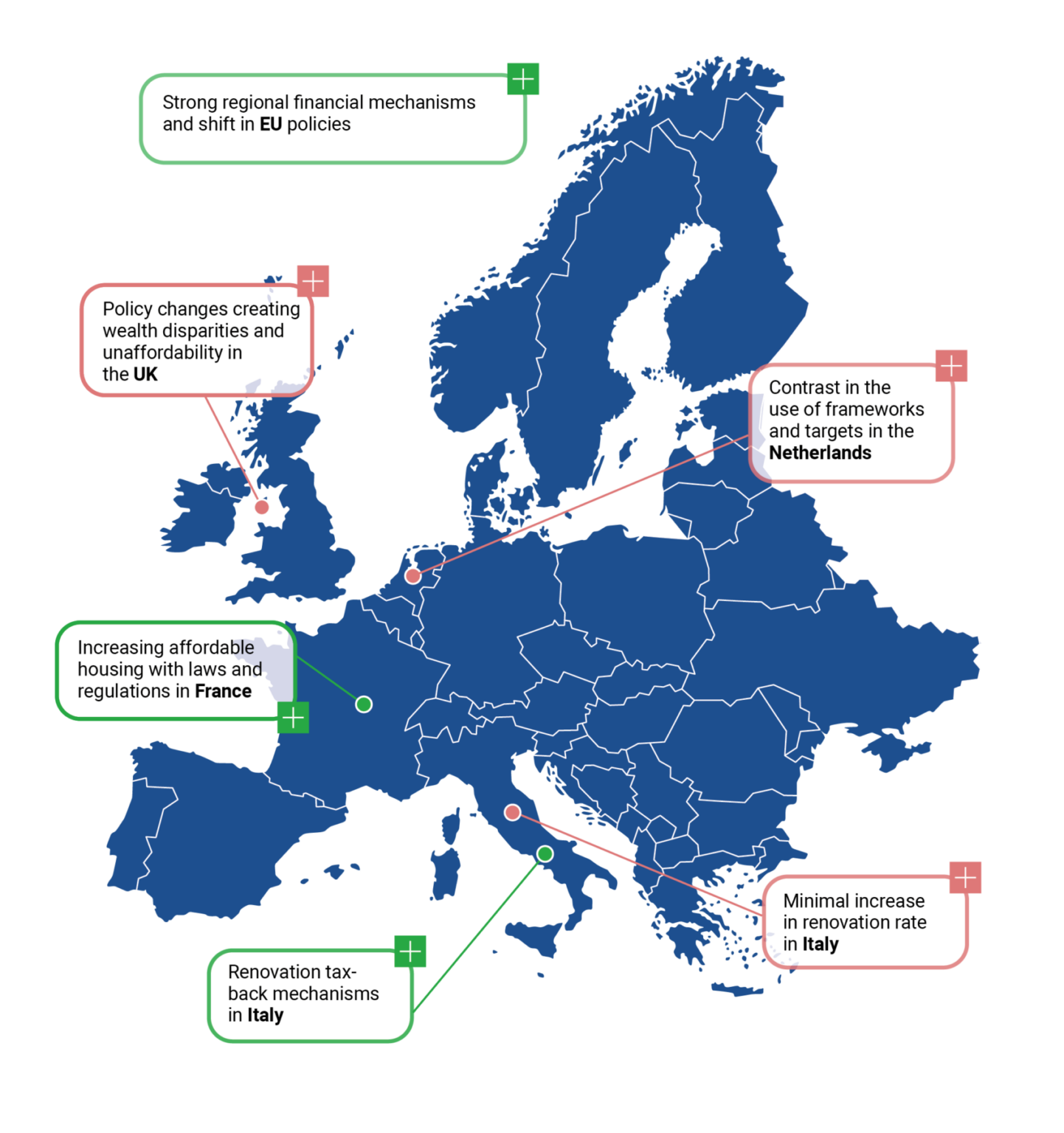State of Housing in Europe
Introduction
The “State of Housing” is a critical area of focus for policymakers, urban planners, and social advocates alike. It encompasses a wide range of issues, from the quality and affordability of housing to the broader social and environmental impacts of residential developments. This report delves into various initiatives aimed at improving the state of housing through innovative solutions and responsible practices. It highlights efforts to tackle energy poverty, promote sustainable living, and integrate social support systems with housing. By examining these initiatives, we gain valuable insights into the current state of housing and the potential for future improvements.

Innovative Solutions for Energy Efficiency in Housing
Tackling Energy Poverty
Energy poverty is a significant challenge in many regions, particularly in social housing. The “State of Housing” report underscores the importance of addressing this issue through innovative refurbishment solutions. These solutions aim to reduce energy consumption and costs for residents while improving the overall quality of living spaces. For example, the implementation of energy-efficient appliances and insulation materials can significantly lower energy bills for households. Additionally, the use of smart home technology allows residents to monitor and manage their energy usage more effectively. Energy Poverty Action provides valuable resources and case studies on successful refurbishment projects.
Local Solar Energy Production
Another key initiative highlighted in the report is the promotion of local solar energy production in social housing. By integrating solar panels into residential buildings, communities can generate their own renewable energy, reducing reliance on traditional power grids. This not only lowers energy costs but also contributes to environmental sustainability. The report notes several successful pilot projects where solar energy systems have been installed in social housing complexes, demonstrating the feasibility and benefits of such approaches. Solar Energy Industries Association offers comprehensive information on the latest advancements and policies related to solar energy.
Combining Housing and Social Support
Integrated Social Support Systems
The “State of Housing” report also emphasizes the importance of combining housing with social support services. This approach recognizes that housing is not just about providing a physical structure but also about creating a supportive environment for residents. By integrating services such as healthcare, education, and employment support into housing developments, communities can better address the needs of vulnerable populations. For instance, co-located healthcare facilities can provide easy access to medical care, while job training programs can help residents secure stable employment. Housing and Urban Development offers numerous resources and guidelines on integrating social support systems into housing projects.
Case Studies and Best Practices
The report highlights several case studies where integrated social support systems have been successfully implemented. These examples provide valuable insights into the strategies and practices that can be adopted in other regions. For example, a housing project in [City Name] incorporated a community center offering various social services, resulting in improved quality of life for residents. By sharing these best practices, the report aims to inspire and guide other communities in adopting similar approaches. Urban Institute provides detailed research and analysis on the impact of integrated social support systems in housing.
Responsible Housing Campaigns and Awards
Promoting Best Practices
The “State of Housing” report also discusses the role of responsible housing campaigns and awards in promoting excellence in housing and corporate social responsibility. These initiatives recognize and celebrate projects that demonstrate innovative and sustainable practices in housing development. By highlighting successful examples, these campaigns encourage other developers and policymakers to adopt similar approaches. The Responsible Housing Award is one such initiative that recognizes outstanding projects in responsible housing.
Corporate Social Responsibility
The report emphasizes the importance of corporate social responsibility in the housing sector. Developers and companies are encouraged to adopt practices that not only benefit their bottom line but also contribute to the well-being of communities. This includes investing in sustainable materials, promoting energy efficiency, and supporting local economies. By integrating corporate social responsibility into their operations, companies can play a significant role in improving the state of housing. Corporate Social Responsibility provides resources and news on the latest developments in corporate social responsibility.
Conclusion
The “State of Housing” report provides a comprehensive overview of various initiatives aimed at improving housing conditions through innovation and responsible practices. By addressing energy poverty, promoting local solar energy production, integrating social support systems, and recognizing responsible housing projects, these efforts contribute to a better state of housing for all. As we continue to face challenges in housing affordability and sustainability, the insights and best practices highlighted in this report offer valuable guidance for future developments. By working together, policymakers, developers, and communities can create a more equitable and sustainable housing environment.
